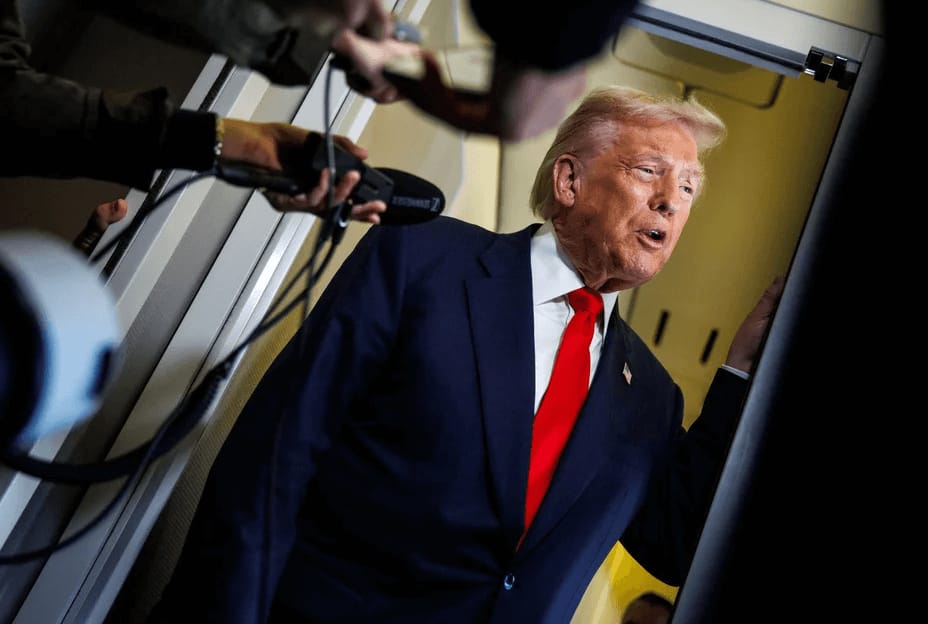- Conservative Fix
- Posts
- Trump Threatens Nigeria Over Persecution Of Christians
Trump Threatens Nigeria Over Persecution Of Christians
The president warns aid will be cut and military options are on the table unless Abuja acts decisively against Islamist killers targeting Christian communities.

President Donald Trump delivered an unmistakable ultimatum on Saturday: stop the targeted slaughter of Christians in Nigeria or lose U.S. assistance and risk a robust American response.
Posting on Truth Social, the president said he had designated Nigeria a Country of Particular Concern (CPC) for religious persecution and warned that U.S. aid would be halted immediately if the Nigerian government did not move to stop “radical Islamist” terrorists. Trump even threatened the prospect of direct military action, writing that U.S. forces could “go into that now disgraced country, ‘guns‑a‑blazing,’ to completely wipe out the Islamic Terrorists.”
This is not political theater. The message is blunt and simple: sovereign governments must protect their citizens, or face consequences from partners who expect basic security and rule of law.
Key facts and context
Nigeria is Africa’s most populous nation with well over 200 million people, and the country’s scale makes any sustained campaign of violence a regional threat.
Christians and Muslims are split across many regions; estimates put Nigeria’s Christian population at roughly 45–50% of the total meaning the violence destabilizes enormous swaths of the country and risks fuelling wider sectarian warfare.
The Country of Particular Concern (CPC) is a formal designation under U.S. law the International Religious Freedom Act that signals the U.S. views a government as failing to protect religious minorities and can trigger sanctions, aid suspension, and diplomatic consequences.
What Trump said and why it matters
Trump accused Nigeria’s leaders of allowing extremist militias and criminal gangs to carry out mass killings of Christians in rural areas. He ordered the Department of War to prepare for potential action and urged Congress naming House Appropriations figures by name to investigate and respond. The president framed the move as an obligation to defend persecuted believers worldwide and a test of whether the U.S. will stand for basic human rights or look the other way.
A few takeaways conservatives should care about:
Sovereignty and accountability: If a partner state tolerates or cannot stop wanton slaughter, American taxpayers should not be bankrolling stability for a government that won’t protect its people. Cutting aid can be a powerful lever to compel action.
Christian persecution is a strategic as well as moral crisis: Attacks against religious minorities often presage broader lawlessness and can create safe havens for transnational terror groups that threaten regional and American security.
U.S. credibility is on the line: Strong, decisive responses deter further abuses and reinforce American leadership. Weakness or endless hand‑wringing invites worse behavior.
What this could look like in practice
Immediate suspension of bilateral aid programs tied to governance and security until Nigeria presents an actionable plan to stop the killings.
Targeted sanctions on militia leaders, complicit officials, and businesses financing terrorist activity.
Support for Nigerian security forces that demonstrate credible action, combined with intelligence sharing to cut off cross‑border supply lines used by extremists.
As Trump warned, preparations for limited kinetic options remain on the table if Abuja will not or cannot act a last‑resort measure meant to protect civilians and dismantle terror networks.
Political and humanitarian fallout
The president’s forceful language will deepen tensions with Abuja, but it will also energize human rights advocates and faith communities demanding protection for persecuted Christians. International partners from African governments to Western allies — will watch how the U.S. balances pressure with constructive engagement. For conservatives, the debate is simple: defend innocents and hold failing governments accountable, or accept impunity and escalating chaos.
Why this matters beyond headlines
This is about more than one country. It tests whether the United States will use every diplomatic and economic tool at its disposal to defend religious freedom and basic human dignity. It also clarifies a central plank of Trump’s foreign policy: the U.S. will back threatened communities directly and will not shy from confronting regimes or nonstate actors that enable mass atrocities.
The president’s ultimatum won’t be measured only in rhetoric it will be judged by what Washington does next. If aid is cut and meaningful pressure follows, Abuja will have to choose between protecting its citizens or losing vital international support. If nothing changes, the United States will have to decide whether words are enough.
Share this piece or subscribe to our newsletter for more clear-eyed coverage of America’s role in the world.